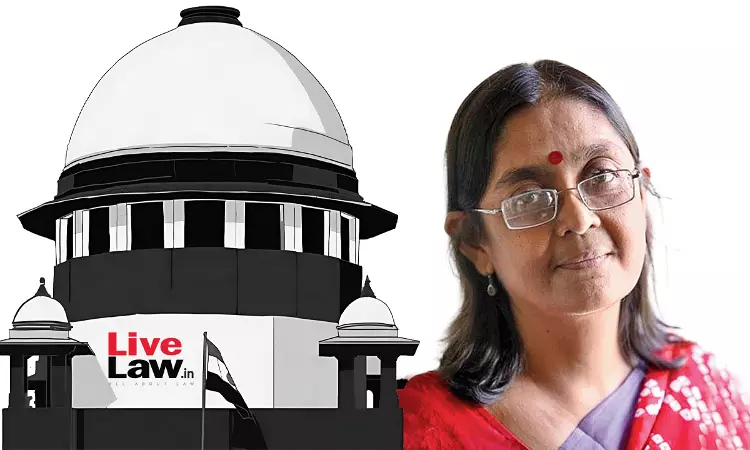Bhima Koregaon Case | 'Don't Need Shoma Sen In Custody Anymore': NIA Tells Supreme Court; Oral Arguments In Bail Plea Concluded
Awstika Das
16 March 2024 11:40 AM IST

Next Story
16 March 2024 11:40 AM IST
In a significant development, the National Investigation Agency (NIA) made a surprising admission in the Supreme Court this week regarding former Nagpur University professor and Bhima Koregaon-accused Shoma Sen.Represented by Additional Solicitor General KM Nataraj, the agency admitted that they no longer require Sen's custody, after a bench of Justices Aniruddha Bose and Augustine George...
